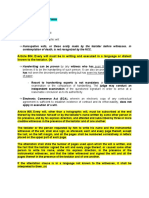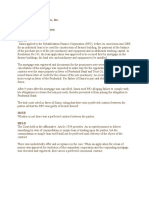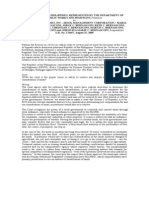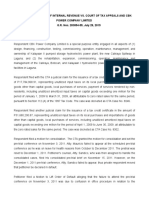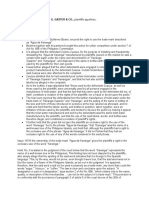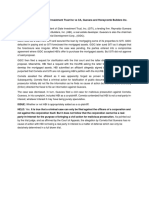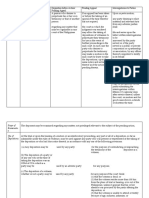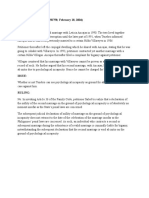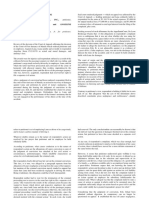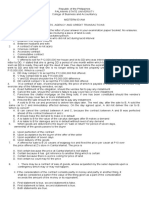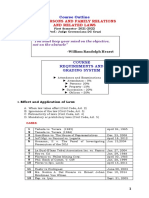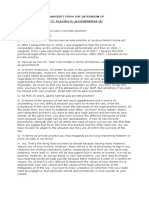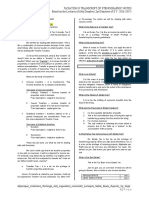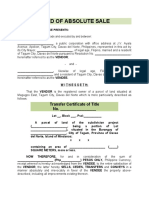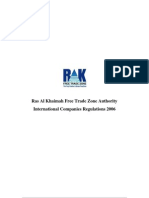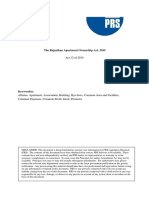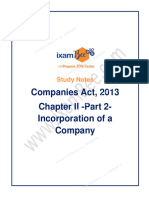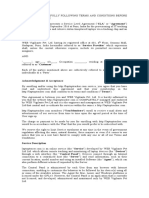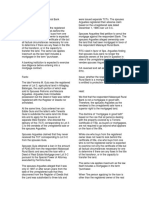0% found this document useful (0 votes)
262 views9 pagesSALES Review
1. Chesca agreed to sell land that her father Regor planned to pass down to her upon his death to her friend Grace. However, the sale is not valid because Chesca did not actually own the land yet, as Regor had not passed it down to her and she had no rights to the property at the time of sale.
2. A contract of sale is an agreement where the seller delivers a specific thing or right to the buyer in exchange for a definite price paid in money or equivalent.
3. For a sale to be valid, the seller must actually own the property being sold. As Chesca did not own the land at the time of sale, she had no
Uploaded by
Aure ReidCopyright
© © All Rights Reserved
We take content rights seriously. If you suspect this is your content, claim it here.
Available Formats
Download as DOC, PDF, TXT or read online on Scribd
0% found this document useful (0 votes)
262 views9 pagesSALES Review
1. Chesca agreed to sell land that her father Regor planned to pass down to her upon his death to her friend Grace. However, the sale is not valid because Chesca did not actually own the land yet, as Regor had not passed it down to her and she had no rights to the property at the time of sale.
2. A contract of sale is an agreement where the seller delivers a specific thing or right to the buyer in exchange for a definite price paid in money or equivalent.
3. For a sale to be valid, the seller must actually own the property being sold. As Chesca did not own the land at the time of sale, she had no
Uploaded by
Aure ReidCopyright
© © All Rights Reserved
We take content rights seriously. If you suspect this is your content, claim it here.
Available Formats
Download as DOC, PDF, TXT or read online on Scribd
/ 9


